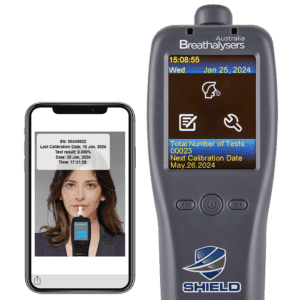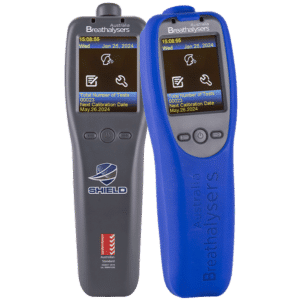Drug Policy NZ: Components, Types of Tests & Consequences for Breaches
08 February, 2024

Illicit drug use harms the individual and others around them. Abusing substances can result in impairments that can cause accidents. Thus, implementing a drug policy in NZ is necessary to deter the use of illicit substances. The components of a policy include reducing, preventing, and treating harm. As such, they often include testing methods like urine, saliva, and hair follicle screening. Breaching the drug policy can result in penalties like imprisonment.
Testing for drug use is also beneficial for employers. Hence, many companies in New Zealand have established a workplace policy. Drug testing employees can help ensure a safe and productive work environment. It can identify those who may have drug issues. Consequently, this decreases the risk of accidents and injuries on the job. Understanding drug policies can be essential for many. The following sections will present its components, the types of tests, and the implications of breaching the policy.
Components of A Drug Policy in NZ
The components of a drug policy in NZ include drug harm reduction, prevention, and treatment. Harm reduction strategies focus on minimising the negative impacts of substance use, like overdose prevention programs and access to clean needles. Prevention efforts aim to lessen the demand for recreational drugs through education, community programs, and early intervention.
Treatment options in New Zealand involve access to healthcare services, rehabilitation programs, and support for people struggling with addiction. These components work together to address drug issues and promote the well-being of individuals and communities in New Zealand. Similarly, having these elements in workplace policies can help create a healthy environment for workers who may be dealing with drug-related issues.
In New Zealand, the drug policy framework encompasses the three elements as essential components in addressing drug-related issues. The country recognises the importance of taking a comprehensive approach to drug policy, addressing the complexities of substance abuse and addiction. By focusing on these, New Zealand aims to reduce the social, health, and professional impacts of using drugs while supporting people in need.
Importance of the Policy
- Public Health – The drug policy is essential for protecting the health and well-being of the citizens. It regulates the use and distribution of drugs, which reduces the harm from substance abuse.
- Law Enforcement – It provides clear guidelines for authorities to control the misuse of prescription drugs and harmful drugs. Subsequently, this reduces drug-related crime and violence.
- Economic Impact – Policies play a crucial role in allocating resources for the treatment and prevention of drug abuse and reducing the burden on the healthcare system.
- Workplace Safety – A policy can address drug-related harm at work. Through this, employers can implement drug testing programs and keep employees safe.

Types of Testing Included in a Drug Policy in NZ
Having a drug policy in NZ is a necessary measure. This is especially true when concerning health issues and workplace safety and regulations. One of its key aspects is the implementation of drug testing. Law enforcement agencies and employers can choose from different types of tests. They often use urine, saliva, and hair testing to detect drug usage among citizens, employees, and job applicants.
Organisations regularly utilise urine drug tests because of their ability to detect a wide range of drugs. Moreover, the testing method is relatively non-invasive. Hence, it is suitable for large-scale drug testing programs, like random testing. Meanwhile, organisations typically utilise saliva testing when on-site testing is necessary because of its convenient collection procedure. Also, it is beneficial after a workplace accident since individuals can use kits for quick results.
Hair testing is another method employed in drug policies. This type of testing can detect drug usage for a long period. Thus, this makes it a valuable tool for identifying regular drug users. While each type of testing has its advantages and limitations, they all help maintain safe and drug-free public spaces and workplaces in New Zealand.
What Substances Can Be Detected?
Drug tests can trace various substances depending on the panels used during analysis. These include magic mushrooms, party pills, cannabis plants, and cocaine. Consuming these substances can result in legal consequences. Other detectable drugs are heroin, methamphetamine, and ecstasy.
Moreover, various testing methods can identify prescription medications without a valid prescription or their misuse. These include morphine, stimulants, and benzodiazepines. Furthermore, the effects of alcohol can be as detrimental as drug use. Hence, the government and workplaces have an alcohol policy. The tests can then detect ethanol, a component of many alcoholic beverages.

Consequences of Breaching the Drug Policy in NZ
The consequences of breaching the drug policy in NZ can have severe impacts on individuals. Drug use and personal drug possession are strictly controlled by the Misuse of Drugs Act 1975. According to this Act, those found with illegal drugs can face fines and imprisonment. The policy does not differentiate between personal use and distribution, meaning even small quantities can result in significant penalties.
Drug offenders may also face long-term consequences, such as travel restrictions and financial instability. Also, they may face stigma and discrimination within their communities. In addition, employers who discover that an employee has breached the drug policy may terminate their employment or subject them to disciplinary actions. This can severely impact career prospects and future job opportunities.
Furthermore, breaching the drug policy can impact families and relationships. Those who are arrested for drug offences may face strain on their relationships with partners, children, and other family members. The stress of legal issues and potential imprisonment can lead to fractured relationships and emotional turmoil for all involved.
Fines and Penalties
For minor infractions, such as possessing a small amount of drugs for personal use during random testing, individuals may be issued a fine. In some cases, authorities may offer diversion or a drug education program. However, for more serious offences, like drug trafficking, offenders may face harsher penalties, including imprisonment.
The fines can range from as low as 100 NZD to as high as 1000 NZD. The purpose of issuing fines for minor drug offences is to discourage drug use while diverting individuals away from the criminal justice system and providing them with an opportunity for rehabilitation.
Conclusion
The drug policy in NZ encompasses various components. These include reduction, prevention, and treatment. Having a policy reduces accidents, avoids the development of health conditions, and helps individuals struggling with drug addiction. It is designed to promote a safer and healthier society and workforce. Organisations can choose from different types of testing, such as urine, saliva, and hair follicle tests. These can detect various drug classes. Moreover, they may also include an alcohol policy for the identification of ethanol.
There are strict consequences for individuals who breach the drug policy. For instance, personal possession of illegal drugs can result in criminal charges. In addition, employees who test positive for drugs may face disciplinary action, including termination of employment. Overall, the drug policy in New Zealand aims to promote a productive community. Furthermore, it keeps the workplace safe. These are achieved while also providing support and resources for people who are struggling with drug use.






























